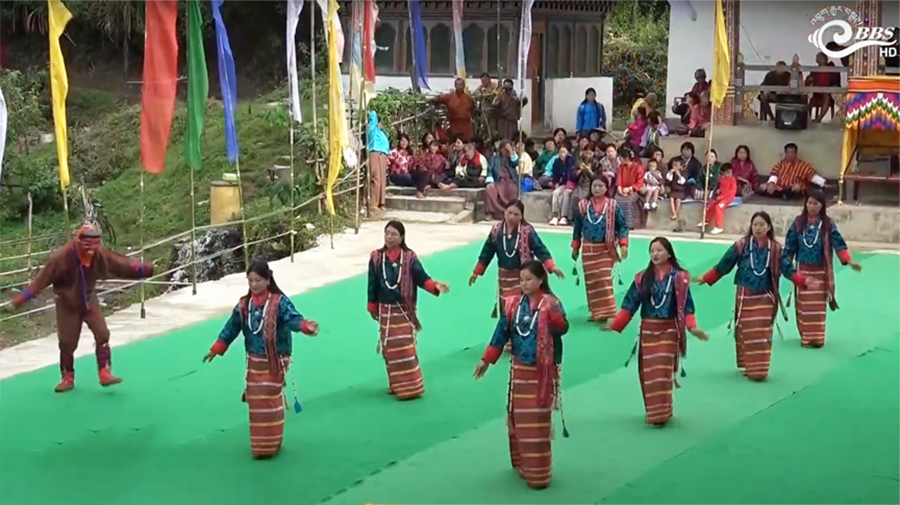
Local festivals, such as Tshechu are deeply rooted in Bhutanese heritage. Held annually at monasteries and Dzongs, these events carry great spiritual significance. For locals, Tshechu is a time to socialize, receive blessings and cleanse away sins. In Pema Gatshel’s Khar village, hundreds of devotees gather each year for the Khar Kadam Tshechu, one of the district’s oldest festivals. The three-day festival which ended on Wednesday, attracted devotees from the village and nearby areas.
 The annual Khar Kadam Tshechu is held from the 13th to the 15th day of the 8th month in the Bhutanese calendar. It marks the time when villagers can begin their yearly rituals called “Lhasoe”.
The annual Khar Kadam Tshechu is held from the 13th to the 15th day of the 8th month in the Bhutanese calendar. It marks the time when villagers can begin their yearly rituals called “Lhasoe”.
At Khar Kadam Lhakhang, monks from Dungkhar Ugyen Choeling Goenpa and villagers of Khar village perform traditional mask dances. These dances are only performed in Dungkhar, Khar Kadham Lhakhang, and Labar in the district today.
“Tshepamay and Kagay are ritual mask dances from the Pedling treasures, including Guru Tshengay. These dances have been performed for nearly 450 years,” said Sonam Dorji, Khenpo of Dungkhar Ugyen Choeling Goenpa, Khar Gewog.
“Our parents told us that in the past only Dungkhar Gonpa Tshechu existed. Just like today, both monks and villagers participated in the event. Back then, there wasn’t any other Tshechu,” said Tsheltrim Lhuendup, Khar-Yajur Tshogpa, Khar Gewog.
“The mask dances are all connected to treasures revealed by figures like Sangay Lingpa, Dorji Lingpa, Ratna Lingpa and Pema Lingpa,” said Jangchu Namgay, a resident of Khar Gewog.
According to the Khenpo of the Dungkhar Ugyen Choeling Goenpa, villagers have preserved the mask dances and festival, ensuring that the culture remains preserved.
“These traditions have been passed down for over 400 years. While there may be minor changes, no major deterioration has happened. The festival remains largely unchanged to this day,” said Sonam Dorji, Khenpo of Dungkhar Ugyen Choeling Goenpa.
The Khar Kadam Tshechu was started by the Pedling Lineage, also known as the Lineage of Pema Lingpa.
Thinley Dorji, Pema Gatshel
Edited by Sonam Pem









